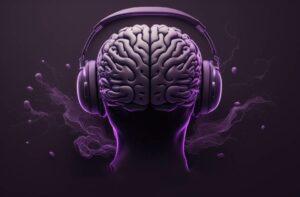The unconscious mind is the part of the mind that operates outside of conscious awareness and is responsible for many of our thoughts, feelings, and behaviours. In mental self-help, understanding the role of the unconscious mind can be a valuable tool for improving self-awareness and achieving personal growth and self-improvement.
The unconscious mind is responsible for many of our automatic and instinctive behaviours, such as breathing and blinking, as well as many of our emotional responses and attitudes. It is also believed to play a role in memory consolidation and retrieval and in the formation of habits and patterns of behaviour.
One important aspect of understanding the unconscious mind in mental self-help is the ability to become more self-aware of one's own automatic and instinctive behaviours, as well as one's emotional responses and attitudes. By becoming more conscious of these aspects of themselves, individuals can improve their ability to manage their emotions, change their behaviours, and achieve their desired outcomes.
Another important aspect of understanding the unconscious mind in mental self-help is the ability to become more attuned to the unconscious beliefs and attitudes that may be driving one's behaviours and decisions. By becoming more conscious of these underlying beliefs and attitudes, individuals can identify and challenge any negative or limiting patterns of thought and develop more positive and empowering beliefs and attitudes.
Unconscious mind
To access your unconscious mind, you can try the following techniques:
* Free association: Allow your thoughts to flow freely, without judgment or censorship, to uncover hidden memories, desires, or fears.
* Dream analysis: Pay attention to your dreams, as they can provide insights into your unconscious mind and its symbolic language.
* Journaling: Write down your thoughts, feelings, and experiences regularly, as this can help you identify recurring themes or patterns in your life.
* Meditation: Practice mindfulness meditation to quiet your conscious mind and become more receptive to unconscious thoughts and emotions.
* Psychotherapy: Work with a mental health professional who can help you explore your unconscious mind through various therapeutic techniques, such as hypnosis, guided imagery, or cognitive-behavioural therapy.
* Free association: Allow your thoughts to flow freely, without judgment or censorship, to uncover hidden memories, desires, or fears.
* Dream analysis: Pay attention to your dreams, as they can provide insights into your unconscious mind and its symbolic language.
* Journaling: Write down your thoughts, feelings, and experiences regularly, as this can help you identify recurring themes or patterns in your life.
* Meditation: Practice mindfulness meditation to quiet your conscious mind and become more receptive to unconscious thoughts and emotions.
* Psychotherapy: Work with a mental health professional who can help you explore your unconscious mind through various therapeutic techniques, such as hypnosis, guided imagery, or cognitive-behavioural therapy.
The unconscious mind can influence your behaviour and emotions in various ways:
* Automatic reactions: Unconscious thoughts and memories can trigger automatic emotional reactions or behaviours, even when you're not consciously aware of the underlying reasons.
* Beliefs and values: Deeply ingrained beliefs and values, often formed during childhood, can shape your perception of yourself, others, and the world around you, influencing your thoughts and actions.
* Defence mechanisms: The unconscious mind can employ defence mechanisms, such as denial or repression, to protect you from experiencing uncomfortable emotions or facing painful memories.
* Motivations: Unconscious desires or fears can drive your behaviour, even when you're not consciously aware of these motivations.
* Automatic reactions: Unconscious thoughts and memories can trigger automatic emotional reactions or behaviours, even when you're not consciously aware of the underlying reasons.
* Beliefs and values: Deeply ingrained beliefs and values, often formed during childhood, can shape your perception of yourself, others, and the world around you, influencing your thoughts and actions.
* Defence mechanisms: The unconscious mind can employ defence mechanisms, such as denial or repression, to protect you from experiencing uncomfortable emotions or facing painful memories.
* Motivations: Unconscious desires or fears can drive your behaviour, even when you're not consciously aware of these motivations.
Understanding your unconscious mind can lead to a better life by:
* Increasing self-awareness: Gaining insights into your unconscious thoughts and emotions can help you better understand your motivations, desires, and fears.
* Promoting personal growth: Exploring your unconscious mind can lead to personal growth by revealing hidden beliefs, patterns, or issues that need to be addressed or resolved.
* Enhancing emotional intelligence: Understanding the unconscious aspects of your emotions can help you better regulate and manage your feelings, leading to improved emotional intelligence.
* Improving relationships: Becoming more aware of your unconscious thoughts and emotions can help you communicate more effectively and authentically with others, fostering stronger, healthier relationships.
* Facilitating healing: Uncovering and addressing unresolved issues or traumas in your unconscious mind can promote healing and improve overall mental well-being.
* Increasing self-awareness: Gaining insights into your unconscious thoughts and emotions can help you better understand your motivations, desires, and fears.
* Promoting personal growth: Exploring your unconscious mind can lead to personal growth by revealing hidden beliefs, patterns, or issues that need to be addressed or resolved.
* Enhancing emotional intelligence: Understanding the unconscious aspects of your emotions can help you better regulate and manage your feelings, leading to improved emotional intelligence.
* Improving relationships: Becoming more aware of your unconscious thoughts and emotions can help you communicate more effectively and authentically with others, fostering stronger, healthier relationships.
* Facilitating healing: Uncovering and addressing unresolved issues or traumas in your unconscious mind can promote healing and improve overall mental well-being.
Related Semantic Entities for Unconscious mind


